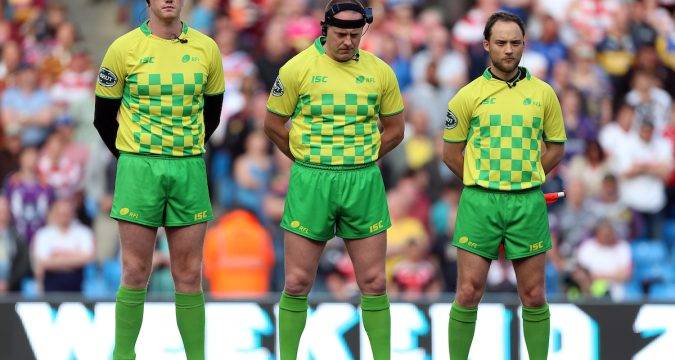
IT’S always a major talking point before, during and after a Super League season, but the refereeing system in rugby league now feels like it is coming to a head.
Without referees, there would be no sport and people need to remember that. However, that doesn’t mean that officials should be without scrutiny.
For one former Super League referee, George Stokes who officiated 39 games at the highest level between 2011 and 2016, there needs to be change in the structure of the refereeing system.
“Rugby league in the UK doesn’t need a full-time set of referees. The main issue why a lot of people have left is when you get to a level in the sport you have to go full-time or you wont get a big game otherwise. People like Joe Cobb and Matt Thomason weren’t going to get those,” Stokes told League Express.
“You have to be full-time to get Grand Finals and Challenge Cups but the full-time squad don’t get paid that much money. If you are earning a decent amount outside of rugby you can’t financially take a hit to go and work as a referee, particularly in the environment that was created.”
That environment was overseen by Head of Match Officials Steve Ganson who has currently been stood down subject to an internal review.
And Stokes believes that people just aren’t going to become referees in that environment where the full-time role isn’t worth it.
“Would I give up a salary to earn a quarter of that and work in an environment that just wasn’t fun and work for someone that was volatile? That was an issue that a lot of people had.
“People haven’t left because of Ganson necessarily, it’s a combination. You don’t want to work in that environment, people have got choices in their lives.
“Are they going to choose to earn 24 grand a year to get berated by internal staff for high profile games in a short career?
“For part-time referees, you are never going to really progress in Super League games and get to the major finals. It’s essentially a paid volunteer role.
“You aren’t going to volunteer your time if you have a family and career, you would get paid a small amount at weekends for an income.
“The problem is they don’t have a system where everyone is equal and on a level playing field because you would get smarter people who have the potential to referee at a higher level and put the current crop of referees under pressure but they won’t do it being part-time.”
